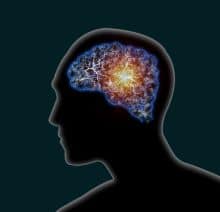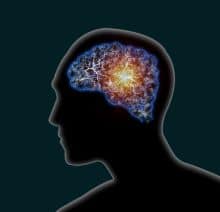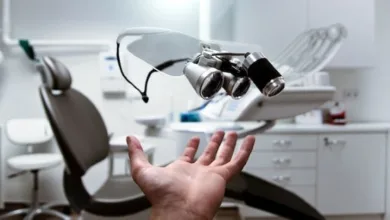The Meaning and the Origin of Nootropics

 Brain is a complex organ; we all know that. Even after decades of research, we haven’t discovered the exact working of the entire brain system. In the simplest terms, we understand that the brain should remain positive to live a good and healthy life.
Brain is a complex organ; we all know that. Even after decades of research, we haven’t discovered the exact working of the entire brain system. In the simplest terms, we understand that the brain should remain positive to live a good and healthy life.
To keep our brains positive and working, we need to boost cognitive performance as well as health. This is where Nootropics come in. These brain boosters enhance memory, focus, attention, motivation, relaxation, mood, alertness, and resistance from stress.
Often referred to as smart drugs, these compounds have solely been introduced in the market to improve brain functioning. Of course, there is more to these miraculous prescription drugs and their origin. To learn more on Nootropics, keep reading this interesting article.
What are Nootropics?
Nootropics are the latest dietary trend and are known to boost the cognitive functions of your brain which, for example, is one of the claimed Phenylpiracetam effects. They can be referred to as simple vitamins, herbs or prescription drugs that are being considered as alternate treatments to help people suffering from Alzheimer’s disease, dementia, memory loss and other brain-related problems. Basically, adults use Nootropics to enhance healthy cognitive aging.
The term ‘nootropic’ was coined in 1972, by Romanian psychologist and chemist, Corneliu Giurgea. It’s Greek for ‘mind’ and ‘turn’ which also means to ‘bend or shape the mind.’ Dr. Corneliu also laid down a descriptive criterion of what is to be referred as a nootropic-
- Enhancement of memory and learning
- Improved cognition under stress
- Protection of brain cells (neuroprotective)
- Facilitation of cell-to-cell communication
- Backed by human research demonstrating brain bioactivity
- Absence of usual pharmacological effects of psychotropic drugs
However, the modern definition of Nootropics states that any supplement that helps in the enhancement of the brain in any way, may be considered to be a ‘nootropic.’
Where do Nootropics come from?
The history of Nootropics began thousands of years ago. As mentioned above, Dr. Corneliu Giurgea brought Nootropics into existence back in the 1960s. However, certain psychoactive substances to boost the working of the brain and other body parts have been in use since prehistoric times.
In India, Ayurvedic science boasts of herbs like Ashwagandha and Tulsi (Basil), which were first used in 5000 BCE to heal the brain. In 1500 BCE, Egypt rose to the occasion with its sedatives, stimulants, and other narcotics as well as hypnotics to help people suffering from brain damage. Around the 19th century, Richard Canton learned about observing electrical impulses in brains. By the 20th century, brain-related diseases, such as Alzheimer’s and ADHD were diagnosed by the doctors, which led to the invention of more drugs to help people suffering from aforementioned problems.
Coming back to the experiments of Giurgea, whose team worked on creating a molecule with the ability to enter the brain and potentially work as a sleep-aid. After 9 years of research and hard work, his team finally proved that his molecule (Piracetam) acted in a way that enhanced the higher-level activities of the brain.
Once Piracetam was determined as a unique molecule for cerebral activity, more than 30 pharmaceutical tests were done on the same to further test its activity on the brain. Unfortunately, it showed no extraordinary result until the team found it to be immediately active during the test for nystagmus.
The first human trial of Piracetam was done in 1965, where the unusual molecule showed significant inhibition of nystagmus. The data also showed that it had ‘fairly good efficacy against motion sickness and vertigo’ in humans.
One of the very first results (from neurophysiological point of view), were delivered from a hospital in Finland, after the study was done on the patients of post-concussion. It was observed in the study that the memory of the patients had somehow improved.
Another trial, done in Brussels, on epileptic children, concluded that their overall mental efficiency improved with the help of this molecule. They were declared to have somehow ‘thought better’ than before. In another study, a Parkinson’s patient was believed to have become aware of his sickness under Piracetam.
The data on Piracetam continued to expand and researched and it was concluded that Piracetam was helping in the improvement of higher nervous functions and protection or restoration of normal brain activity. It was thus concluded that Piracetam and other potential molecules “appeared to have a selective activity upon the higher-integrative mechanisms of the brain.”
In 1972, Giurgea proposed that based on the evidence of Piracetam, a new class of agents, referred to as Nootropics, meaning ‘towards the mind’ , shall be introduced. Rest, as they say, was history. By the 1980s, new and advanced versions of the molecule were introduced, including Noopept and Phenylpiracetam, that had better and more successful clinical studies done on humans. Noopept was noted to have anxiolytic properties and was more powerful and orally bioavailable. Phenylpiracetam, on the other hand, was designed with better retainment of the cognitive enhancing aspects of Piracetam.
Today, many Nootropics are the result of vitamins, herbs, amino acids, and stimulants, which can naturally increase the cognitive function of your brain. Some of the popular ingredients added to Nootropics are caffeine, rosemary, turmeric, green tea, amongst others.
Do Nootropics work?
We all come with different bodies, timelines, and magnitudes. Thus, it would be difficult to say that Nootropics work on every individual. However, these prescribed drugs are known to do wonders for anyone who is clinically healthy.
The answer to the working of Nootropics also refers to the brain-affect a person is seeking. For example, if one would require a treatment related to memory enhancement, different dosage and applications would be required from that for someone who wants to increase his or her focus. If you are looking for cognition enhancers, wholisticresearch.com has got the best supplements for you.
Another reason why the working of Nootropics varies from one person to another is the discipline that one shows during the treatment. For instance, people who take caffeine, will only see a short-term effect on themselves, while those who resort to Bacopa, will see long-term effects of the same. Some of the most effective smart drugs are listed here for your perusal.
Good thing is that the studies related to Nootropics have been conducted on humans as well as animals. These studies are also peer-reviewed, double blind, and have statistical support as well. Thus, the effect of these supplements cannot be decided on the basis of one person, or even a group of individuals.
Things to keep in mind before buying Nootropics
Since they are available in a lot of variants, one must also choose the best kind of Nootropics for him or herself. They are available in a wide range in the market – powder, capsule, tablets, soft gels, chewable, edibles. The price range of these supplements also range from one variant to another. The purchase of the product also depends on the dosage as well as the problem you are seeking to heal.
Some people also like to blend two or more ingredients together to make the supplement more effective. This mixture is popularly known as ‘stack.’ You can make your own stack or buy pre-made ones that are easily available in the market. A good example of ‘stack’ would include caffeine and theanine, who bring energy and relaxation, respectively. Another example of the same can be Bacopa, which enhances memory and Rhodiola, which increases focus. Stacks are also more expensive than single products. It, however, totally depends on your choice of how you want to have the supplement.
Conclusion
We hope this introduction of Nootropics, their origin and history were well-understood by you. The research and studies on the same are still going on and we expect to receive more positive results from various Nootropics.
For now, we think, it would be all right to consider taking these healthy supplements to increase your brain power, boost your memory and sharpen your focus. Nootropics improve working of the brain in many healthy ways and you shouldn’t miss out on the opportunity to make yourself better. So, go ahead and give them a try today!





